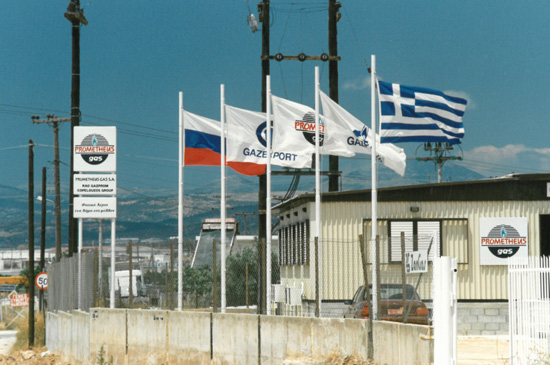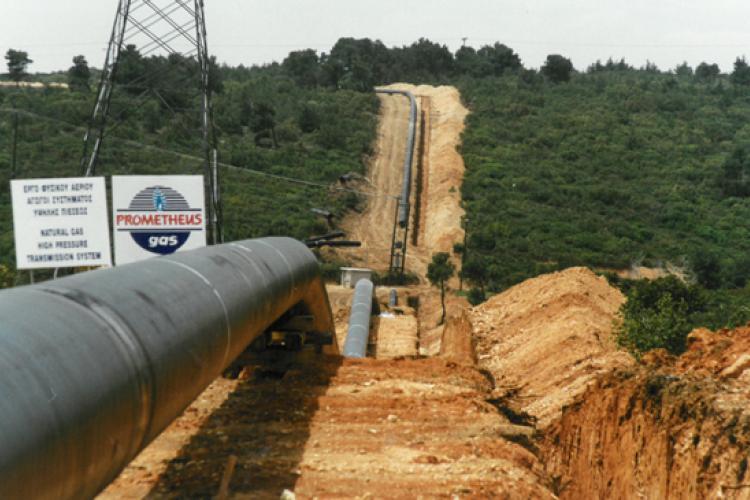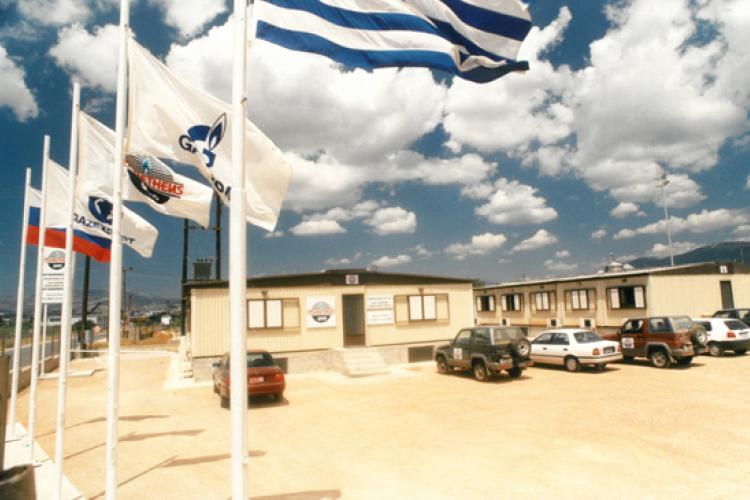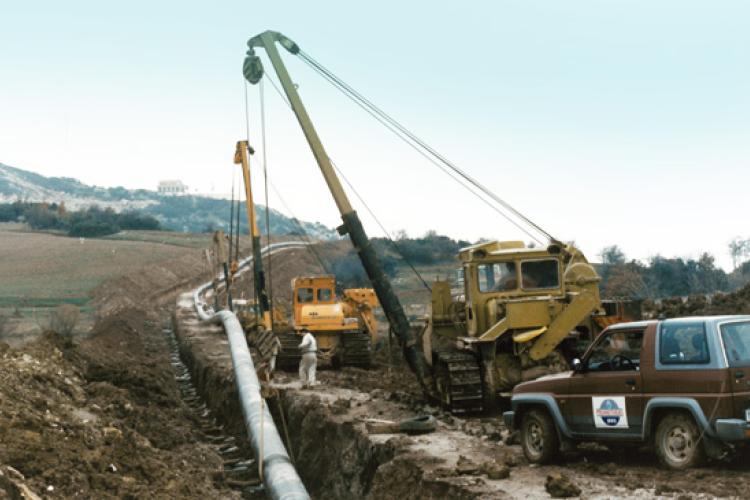Specialized Greek publications recently reported on the "divorce" between “Gazprom” and “Prometheus Gas”, stressing that the “Copelouzos” group will become the sole shareholder of “Prometheus Gas”.
The Greek group "Copelouzos" will soon buy out Gazprom's stake in the Greek consortium "Prometheus Gas" and will become the sole shareholder in the consortium, as it currently owns 50 percent of the capital and the rest 50 percent are held by the Russian state-owned gas giant, a source from " Copelouzos" told Agence France-Presse today, BTA reported.
"This is a divorce by mutual consent mainly because of the war in Ukraine and the European sanctions," said an employee of the Kopeluzos group, who wished to remain anonymous.
He stressed that the end of this partnership, which dates back to 1991, "will be decided within two weeks" and that "the current contract will expire in December 2027 as planned".
The divorce will certainly hit Greece hard. As written on the page of " Copelouzos" - "Prometheus Gas" is "the most experienced and reliable private company in the supply of natural gas and the construction of energy infrastructure projects in Greece". For decades, through Gazprom, it has provided large quantities of gas exceeding those agreed for import into Greece by the state company DEPA. These amounts amount to 3 billion cubic meters (bcm) per year until 2016 and 7 billion cubic meters per year after that period.
AFP was unable to get a comment from Gazprom.
The amount of Russian gas "has decreased significantly since last year, and the price has increased," the Greek official stressed.
Specialized Greek publications recently reported on the "divorce" between “Gazprom” and “Prometheus Gas”, stressing that the “Copelouzos” group will become the sole shareholder of “Prometheus Gas”.
This is an "expected development" given the geopolitical changes and the complete restructuring of the gas market in the Balkans and Europe, the financial information site “mononews” said last week.
After Russia's invasion of Ukraine, despite its historic ties with Russia, Greece, as a member of the European Union, supported Western sanctions that led to a sharp reduction in Russian gas supplies to Europe, notes AFP.
Greece's “Copelouzos Group” recently made new investments in a gas-fired power plant and a liquefied natural gas (LNG) storage and regasification plant in the town of Alexandroupolis in northeastern Greece.
"Alexandroupolis plays a key geopolitical, energy and development role and will continue to do so," Greek Prime Minister Kyriakos Mitsotakis said recently at the launch of the gas-fired power plant project. The ceremony, held on January 14, was attended by the Bulgarian Minister of Energy, Rosen Hristov.
The power unit will have a capacity of 840 megawatts and will be built jointly by the Public Energy Corporation (51%), DEPA Commercial (29%) and “Copelouzos Group” (20%).
The “Gastrade” consortium, which includes the “Copelouzos Group”, “Gaslog Investment”, “DEPA Commercial”, the operator of the gas transmission network DESFA and the Bulgarian "Bulgartransgaz" EAD - with shares of 20 percent each , is participating in the project for a liquefied natural gas terminal. After initially booking 500 million cubic meters of gas per year, the Bulgarian operator subsequently increased the volume to 1 billion cubic meters.
Source: https://business.dir.bg/kompanii/i-gartsiya-se-proshtava-s-gazprom-s-boleznen-razvod
Comments of the Editor-in-Chief: Undoubtedly, EU sanctions against Russia as an aggressor state are the main reason for the "divorce" between „Copelouzos Group“ and „Gazprom“. There is no doubt that „Gazprom“ and, accordingly, the budget of the Russian Federation will suffer serious losses from this turn of events.
However, it should not be considered that this "divorce" means the cessation of business relations between "Copelouzos Group" and "Gazprom". The wording "divorce by mutual consent" is not accidental. Gazprom's shares in „Prometheus Gas“ can be considered both sold and "held in custody" in the „Copelouzos Group“ company.
For the entire period since the beginning of the cooperation of "Copelouzos Group" with "Gazprom", the Greek company relied to an exceptional extent on its Russian partners for the development and growth of its profits. There is no doubt that the Russians can leave their ownership of „Prometheus Gas“ in the safe hands of loyal partners.
Undoubtedly, "Copelouzos Group" is aware of the dramatic geopolitical changes and the transformations in the structure of the natural gas market. Therefore, they are taking measures, the most important of which is the participation of "Copelouzos Group" in the liquefied gas terminal in Alexandroupolis.
At the same time, we can have very serious doubts that "Gazprom" continues to work undercover in some areas under the coverture of "Copelouzos Group". Such is the example of the high-voltage connection project - an energy interconnector between Greece and Egypt, called "GREGY". Officially, "green" electricity produced in Egypt must be transmitted over this link. The production of this "green" electricity should be carried out mainly at the expense of wind energy parks in the Sinai desert and in the area of the Suez Canal Zone. These wind farms have yet to be built by the “Copelouzos Group”, which is a huge investment.
There are serious reasons to suspect that it is about hidden financing by “Gazprom”, which has the necessary resources for such a large-scale project. Also, Russia has much more weight with the Egyptian government than a private company, especially with the scale of the “Copelouzos Group”, which is not comparable to that of serious transnational companies.
At the same time, the Copelouzos Group has an additional reason to conceal a possible commitment of Gazprom in the GREGY project. The reason is that the company is currently lobbying the European Commission for the declaration of "GREGY" as a project of general interest, with the aim of financing the high-voltage electrical interconnector between Greece and Egypt with European funds.
Of course, the connectivity of EU countries with other neighboring countries is a positive phenomenon and it is encouraged by Brussels. Furthermore, the said doubts are based exclusively on the history of the relationship between the “Copelouzos Group” and “Gazprom”, as well as on the logical considerations presented. There is no documentary evidence of any covert actions by "Copelouzos Group" within the "GREGY" project, but the doubt remains that the Greek company is not alone in this initiative.
The editors are ready to publish other opinions and considerations on the project in question, both for ethical reasons and because of its great importance.




